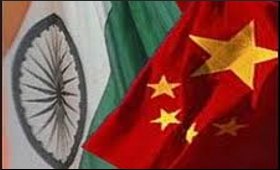|
|
|

|
US, India's absence in regional trade deals will make China to up its role in trade
|
|

|
|
| Top Stories |
 |
|
|
|
IANS | 18 Jan, 2023
The absence of the US and India from the Asia Pacific (APAC) region's
major trade agreements is likely to limit their ability to reap economic
benefits while China will increase its role as the regional focus for
trade, said Moody's Investors Service in a report.
"While
APAC trade has flourished under the auspices of a rules-based
international order, the inception of major regional trade agreements
and the absence of the US and India from these accords will increase
China's centrality to regional trade," Moody's said.
The global
credit rating agency in a report said, the rising geopolitical tensions
in APAC against the backdrop of increased competition between China and
the US and its allies in the region will create "fault lines" that could
carry long-lasting credit effects.
Increased US-China
polarization and military competition, exemplified by tensions in the
Taiwan Strait and increased military expenditure by governments in the
region, have reactivated new and existing security alliances that may
drive shifts in international business strategies over time.
These
fault lines, which reflect the formation of new security and political
pacts and the reconfiguration of Asia's established economic, trade and
financial relationships, may put pressure on international companies,
investors and financial institutions to reshape or build redundancy into
their operations.
These risks come on top of existing credit challenges such as weaker global growth and tightened liquidity, Moody's said.
According
to Moody's, alliances and initiatives will likely ebb and flow with
changes in governments and considerations of economic relations with
China, but the overall direction is clear: governments including the US,
Australia, India, Japan and others in Europe seek to form a security
and economic counterweight to China.
It also said semiconductors
and renewable energy technology will face increased government curbs on
access to sensitive technologies. Closer scrutiny of foreign investments
and data localization efforts could become prevalent, raising
regulatory and operational costs for multinational companies.
Geopolitical
alignments are also leading to an increase in defence expenditure for
governments across the region including China, India, Taiwan and most
notably Japan, Moody's said.
Through its participation in the
Quad, India has more overtly shifted its security posture though it
retains elements of its historically "nonaligned" foreign policy, which
has preserved space for it to maintain positive relations with Russia
despite the latter's war with Ukraine, the report notes.
Central
banks in APAC have also proposed financial and transaction data
localization for foreign financial institutions operating within their
borders to support bank supervision and macro-prudential surveillance.
In
India, for example, both the central bank and capital markets regulator
have either finalised or proposed data localization requirements that
affect banks, payment providers, foreign investors and asset managers.
Further capital and banking flows will align with geopolitical norms, said Moody's.
"The
US dollar remains central to international trade, particularly in APAC,
thus driving efforts to diversify into other currencies. Meanwhile,
geopolitical considerations may alter strategies for globally active
financial institutions with significant regional operations," the report
notes.
|
|
|
| |
|
|
|
|
|
|
|
|
|
|
|
|
|
|
| |
| Customs Exchange Rates |
| Currency |
Import |
Export |
US Dollar
|
₹84.00
|
₹82.25 |
UK Pound
|
₹104.65
|
₹108.10 |
Euro
|
₹92.50
|
₹89.35 |
| Japanese
Yen |
₹56.10 |
₹54.40 |
| As on 25 Jul, 2025 |
|
|
| Daily Poll |
 |
 |
| Who do you think will benefit more from the India - UK FTA in the long run?
|
|
|
|
|
|
| Commented Stories |
 |
|
|
|
|
|
| |
|